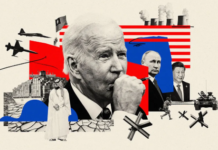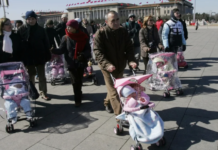By Sarah Wie and Ananya Nrusimha
This past year has certainly been a year to remember, for both the good and the bad.
The most notable airplane story of the year is the mysterious disappearance of Malaysia Airlines Flight 370, which was an international passenger flight that vanished on March 8, 2014 while flying from Malaysia to Beijing. The aircraft disappeared from air traffic controllers’ radars while over the South China Sea. The aircraft’s communication systems did not send out any distress signals or sign of tumultuous weather or technical issues with the aircraft. The flight carried 12 Malaysian crew members and 227 passengers from 15 nations. The search effort involved several nations an began in the Gulf of Thailand where the flight’s signal was last detected. The search then extended to the Strait of Malacca and Andaman Sea. Currently, the search is continuing with a comprehensive search of the seafloor that began in October 2014. In addition, there has been no confirmation of flight debris, resulting in several unofficial disappearance theories, ranging from hijacking to a cyberattack to Pitbull and Shakira’s song “Get It Started” to alien abduction. None have been verified.
The evenness of the number 2014 can mean only one thing in the realm of sports: the Olympics. This year’s Winter Olympics took place in Sochi, Russia. The Games began on February 7 with a spectacular opening ceremony and ended on February 23 with an equally magnificent closing ceremony. There were a total of 98 events in the 15 winter sport categories and 12 new competition during the Games. The budget was originally US$12 billion, but the final budget skyrocketed to US$51 billion, which set the record for the most expensive Olympics in history. Several controversies marred these Games, especially concerns of the safety of LGBT athletes because of the recently passed legislation in Russia, as well as threats of jihadist groups related to the insurgency in the North Cacasus. Within the Games themselves, particularly in ice skating, a great controversy surrounded the awarding of the gold medal to Adelina Sotnikova and the fairness in the judging systems. Many question this fairness, as many of the judges were biased towards Sotnikova (known as ‘home field advantage’), and many believe that Yuna Kim (“Queen Yuna”) deserved the gold medal for an overall better performance.
The spread of the Ebola virus, a classified biosafety level 4 agent, raised much concern this past year as well. After the virus spread outside of Africa (and the subsequent slipups within the CDC), many people began panicking and paying more attention. Since October 15, 2014, there have been 17 cases of Ebola treated outside Africa, and 4 have died.
The Interview, a Sony film regarding North Korea, has been the most recent controversy of 2014. After several theatres decided to retract this movie from their available viewing options, many decried this deed as an action against freedom of expression. However, the real issue surrounds the blatant racism that this movie entails. Instead of bringing light to the actual issues plaguing North Korea, such as mass starvation and the use of concentration camps with conditions comparable to the Holocaust, the movie uses low-level humor and crude Asian jokes in a failed attempt at a movie.
Race relations were brought to the forefront of America’s public consciousness after the death of an unarmed African-American teenager named Michael Brown in Ferguson, Missouri in August. The incident and the aquittal of the police officer who killed Brown incited national outrage and protests in multiple cities; protests in Ferguson became violent and have put the city in lockdown. Michael Brown’s death has also sparked a national conversation on police brutality; many are now calling for all police officers to be equipped with cameras to allow for effective documentation of and appropriate consequences for police brutality.
In the Middle East, a terrorist group once linked with Al-Qaeda became an independent entity and began its quest to turn most of the region into an Islamic caliphate. While the group has been calling itself the Islamic State since June, American news organizations use either ISIS (the Islamic State of Iraq and Syria) or ISIL (the Islamic State of Iraq and the Levant) to refer to the group; the American government uses the latter acronym. This group already controls large portions of Iraq and Syria. They are probably best known for their use of social media, their chilling propaganda videos and their decapitation of many innocents who refused to ally with them, including three Americans and two Englishmen.
The United States conducted a prisoner swap in May with the Taliban, who received 5 high-ranking Guantanamo detainees in exchange for Army Sergeant Bowe Bergdahl. Bergdahl had been a prisoner for five years; the circumstances of his capture have been held under intense scrutiny, as some believed that he was deserting his post when he was captured. While an army investigation on the matter has been completed, it has still not been made public at this time.
The deaths of three Israeli students in the West Bank led to a bloody continuation of the Israel-Palestine conflict during the summer. Israeli officials believed that Hamas (a group that currently controls the Gaza strip) was responsible for the killings and arrested Hamas officials and began to bomb the Gaza strip in retaliation. In early July, a Palestinian teenager was killed in Jerusalem; six Israelis were found responsible and were arrested. This only served to increase tensions on both sides, which sparked widespread violence, riots, and bombings that killed 1,777 Palestinians and 68 Israelis. Both Israel and Hamas are currently engaged in peace talks.









